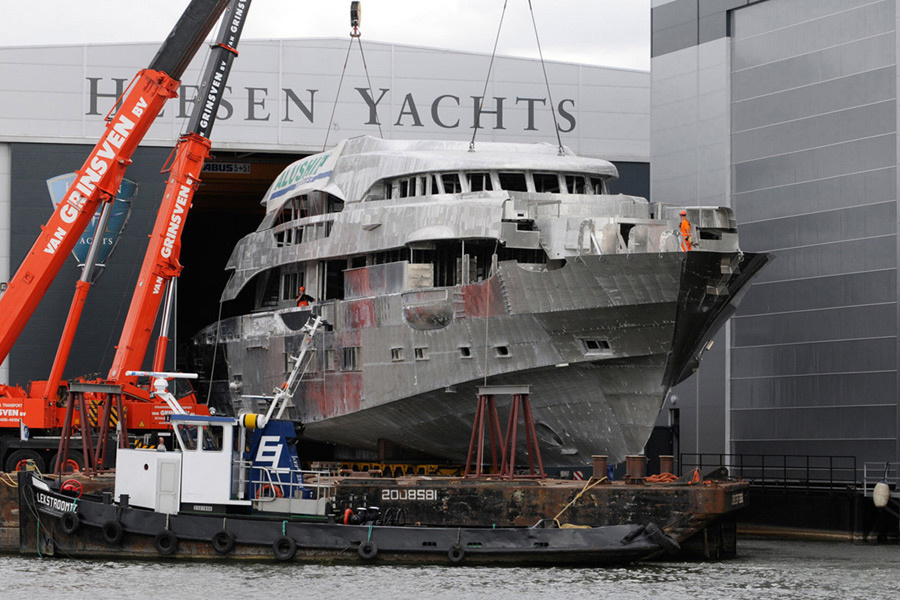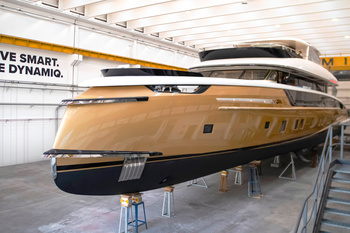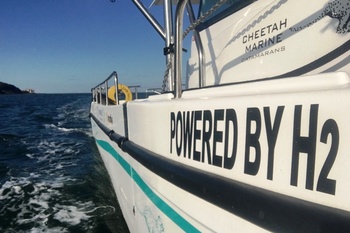To answer this question we spoke with two experts specialising in the construction of superyachts - David Reardon, partner at Hill Dickinson, a leading English law firm on the law of the sea, and Sergei Dobroserdov, director of Nakhimov, a Monaco based brokerage company.

- Let's start with the basics: is there a «standard contract form» for the construction of a yacht?
David Reardon: There is no such form. But there are issues that need to be fixed in all contracts. Because the wording of these issues varies from shipyard to shipyard, and often even from project to project in the same shipyard, standardization of a yacht building contract is limited. Each contract is individual in terms of the subject matter and the composition of the rights and obligations of the parties and requires independent development.
- What parts does a contract for the construction of a yacht usually consist of?
Sergey Dobroserdov: We always recommend our clients to agree and sign with the shipyard the following package of documents on the deal: deck plans and yacht profile (so-called general arrangement plans), specification and the contract itself. As a rule, in the appendixes there are samples of bank guarantee and the form of acceptance certificate of the concrete stage. It is also our good practice to sign separate agreements on the two most controversial types of work - hull painting and interior production.
Even the largest Dutch shipyards devote no more than two or three pages to these issues in the contract, which gives them more «room for maneuver».
We have developed documents regulating in detail the whole process of execution and acceptance of these works, consisting of 30-40 pages each.
- One of the most important issues is the protection of client's payments before the yacht is delivered. Give me advice on how to protect your investment during the construction phase?
David Reardon: Protecting the client's financial resources before the yacht is delivered is a key issue. Firstly, there is a need to secure a refund in case of bankruptcy of the shipbuilder. Secondly, to prevent the shipyard from withdrawing from the agreement if it receives a better offer from another buyer. To solve these problems, it is necessary to have certain information. Ideally, the customer chooses a shipyard with a reputation and stable financial position and requires a full refund guarantee issued by a top-quality bank for all construction contributions. Many shipyards offer a bank guarantee in return for the first one or two payments and the subsequent transfer of the vessel to the client once construction begins. To accept such an offer, it is necessary to carefully assess the cost of the unfinished part of the project at each moment of payment, as well as to specify how this guarantee will be implemented in this jurisdiction from the legal and practical point of view. In case the buyer will ever have to refer to it.
However, none of the ways is a hundred percent guarantee, so clients should make a decision taking into account all available information, weighing up the strengths and weaknesses of each individual shipyard.
- At what stage is the best time for the client to consult a lawyer and how long are the contract negotiations going on?
Sergey Dobroserdov: As soon as the key parameters of the deal are agreed, i.e. yacht's plans, main specification parameters, construction time and price are agreed, lawyers should be involved. The terms of negotiations depend on the intensity and willingness of the parties to conclude the deal, but as a rule, the preparation of the papers takes at least two or three weeks. Of course, when working with specialized lawyers who have experience in such transactions.
- What are the key parameters to be specified in the contract for the construction of the yacht?
David Reardon: The specification should contain all the elements that are important to the client and his representatives. This is important to remember as the customer will not be able to demand anything further that is not described in the specification or shown on deck plans. It must be made clear in the contract that the yacht, when delivered, must conform to its description. However, most contracts include a point with an estimate of penalty damages for the case of compensation for defects in guaranteed operating parameters (e.g. speed, autonomy, noise), but this point is generally more advantageous to the shipbuilder than to the client, as it always contains amounts much lower than the actual costs of eliminating defects.
- How should work on a specification be organized and what should it contain?
Sergey Dobroserdov: The main thing is to decide on the classification of the vessel and the flag. We recommend to refer to the known registers and be sure to build for commercial class. English trading Red Ensign or Maltese flags are the most difficult to regulate jurisdiction. If necessary, these flags can always be exchanged for more loyal ones such as the Marshall Islands, or the yacht can be given private status. But not the other way around. The same applies to area restrictions - always include in the specification an unrestricted, not a short range as the shipyard suggests.
Remember that a class limit says first and foremost that the yacht is less safe.
I can cite a few important things for the owner that are almost always missing from the standard specifications of any class of shipyard: clean height of ceilings (pillows) on decks, the area of guest rooms with luxury finishes, a description of the fire protection system (for example, a modern high fog is much more expensive than a standard sprinkler system, but much more efficient and will give you extra minutes to rescue in case of fire), a detailed list of suppliers of equipment and so on.
How do you advise to fix payment terms in the contract?
David Reardon: Ideal for the buyer is a low fee when signing the contract and the rest of the balance when the boat is delivered. For the builder, the goal will be a contract on terms that
do not use internal money and cover the construction costs with the buyer's prepayments.
The actual payment schedule will be a compromise between these principles.
The real question is what to consider as the reason for payment and what conditions must be met before the payment deadline. Payments must be linked to the amount of work performed. Remember that payments with reference to the calendar date only must be made even if nothing has been done! If reference is made to the main construction stages of the project, it is important to make sure that the degree of completion of the work will be determined not only by the shipbuilder himself but also by the third party chosen for the assessment and how easily the agreed stages of the work can be assessed.
Why are almost all construction contracts based on English law and which arbitration do you recommend for dispute resolution?
David Reardon: The predominance of English law is partly due to its historical importance and extensive practice in maritime dispute resolution. It has maintained its position because it allows the parties to agree on their own terms without the risk of applying unknown rules of
mandatory
rules
, as well as through predictability in the way the law is applied.This continuity is important for parties, who can thus accurately predict the interpretation of their contract rather than being dependent on the opinions of arbitrators and judges.
The choice between litigation or arbitration would depend on the priorities of each party: whereas a commercial court tended to be faster and its procedures more elaborate than an arbitration. An arbitral tribunal could be held in any country in the world, the decision would be confidential, in most cases final, and in many jurisdictions even enforceable.
- What are your main recommendations to owners negotiating a yacht?
David Reardon: The most important part of any contract is the specification, as it defines what the shipyard is obliged to deliver. The time spent on its development and testing will pay dividends, both during construction and during the delivery of the yacht. Secondly, one must be realistic in assessing the shipyard and the results it can achieve - a competitive price and a fast delivery date are attractive only if they are met. Finally, consideration should be given to local legislation and local mandatory rules that can be applied regardless of what has been agreed in the contract.
- What is the approximate cost for lawyers and yacht managers in preparing contract documents?
Sergey Dobroserdov: If we take the contract for the construction of a 50-metre motor yacht as an example, the cost of legal support of the deal by a company of Hill Dickinson level will be about £30-35 thousand Nakhimov takes about €25 thousand for the development and approval with the shipyard of deck plans and full construction specification. I think that such costs are quite reasonable when investing over €20 million in the construction, which is a third of
the contract price.
Published in YACHTS magazine #57.










